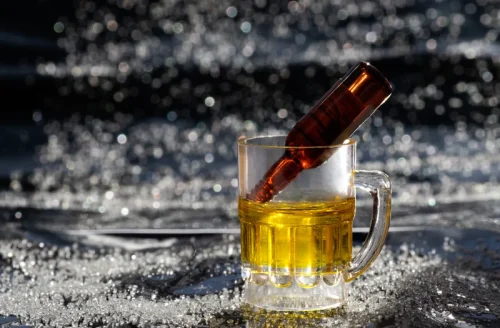
The NHS recommends drinking no more than 14 units of alcohol a week, spread across three days or more. If you’re struggling with alcohol misuse, it could also be worth considering sobriety and speaking to a professional, such as your GP, for support and guidance on the next steps. “If they’re persistent, it may mean a more profound dependence on alcohol,” Dr Ali continues. “f you see a pattern, seeking support is a smart choice. The approach depends on the person. Some may just need to cut back, others may need structured help. As annoying as they are, hangover shakes aren’t immediately a cause for concern, says biomedical expert Dr Naheed Ali.
- After the alcohol has been cleared from the system, a hangover can last for 8 to 24 hours 1, depending on how much you’ve consumed.
- While both can involve similar physical effects, there are key differences between the two conditions.
- Magnesium is a natural muscle relaxant and can help reduce the severity of tremors and other involuntary movements.
Why Do I Get The Shakes After Drinking Alcohol?

By prioritizing hydration, individuals can mitigate the impact of dehydration on hangover symptoms and promote a smoother recovery process. If you are looking for answers on how to stop alcohol shakes, we must look at what is causing it. Some people who go through hangover symptoms will experience shakes or tremors, hangover shivers and while scary, they are not always medically dangerous. Excessive drinking for long periods and stopping can cause severe tremors and is a cause for serious concern.
Impact of Alcohol on the Body
Hangover shakes are often a sign of alcohol withdrawal, which can range from mild to severe. In some cases, drug addiction hangover shakes can be a warning sign of more severe alcohol withdrawal symptoms, such as delirium tremens (DT), a potentially life-threatening condition. Hangover shakes, also known as tremors, are a common symptom experienced by some individuals after consuming alcohol. These shakes most often occur in the hands and fingers but can also affect other body parts, particularly for those with alcohol use disorder.
- This is partially what leads to the buzzed or drunk effect some people pursue on purpose.
- It is important to note that while electrolyte-rich foods and beverages can help alleviate hangover symptoms, they do not cure or eliminate the effects of alcohol.
- These ingredients not only increase fluid intake but also replenish electrolytes lost due to alcohol consumption 3.
- A true fever is a body-enforced temperature rise, usually to kill bacteria or viruses that may be affecting your body’s systems or organs.
- It’s also important to be mindful of the types of beverages consumed alongside alcohol.
- The worry is that shaking after drinking alcohol can be a sign of delirium tremens and alcoholism.
Common Symptoms of Hangover Shakes

In other words, alcohol has been shown to trigger cytokine release and this causes symptoms that are similar to inflammation. Cytokines have an interplay with inflammatory mediators such as histamine 3. On the other hand, a fever, in general, is caused by an underlying disease process or presence of infection. Some people also have diarrhoea because alcohol causes less water to be absorbed from the small bowel, meaning its contents are propelled along more quickly. Shaking, whatever the cause, is unpleasant, and you will want to know how to get rid of shakes after drinking.
- When the body lacks proper hydration and electrolyte balance, it can affect the normal functioning of muscles and nerves, potentially leading to shaky movements 3.
- With over a decade of research, we’ll explore everything you need to know about a hangover fever, can a hangover cause a fever, dispelling myths, and the science behind it.
- Temporary changes to neurotransmitter activity and low blood sugar are part of the reasons why some people experience hangover shakes after consuming alcohol and subsequently stopping.
- These could be signs of serious medical problems and drug addiction and need to be addressed right away.
Causes of Hangover Shakes
This can make your blood pressure drop, causing exhaustion and weakness after drinking alcohol. It’s worth noting that hangover shakes, although unpleasant, are usually not a cause for concern. They are typically short-lived and can be managed with rest, hydration, and a balanced diet. However, if the shakes persist beyond 24 hours or if there are concerns about alcohol withdrawal, seeking medical advice promptly is advisable. When experiencing a hangover, it’s common to encounter symptoms such as shakes or tremors, known as hangover shakes. These tremors can occur in various parts of the body, including the hands, fingers, arms, eyes, head, and voice.

